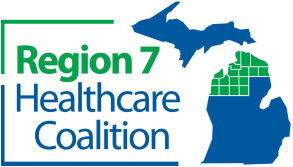|
NETEC: New Anthrax Vaccine Added to Arsenal of Defense Against Bioterrorism
Anthrax continues to pose a significant public health concern due to its potential use as a bioterrorism agent and its ability to cause severe illness in humans. However, this summer a new anthrax vaccine was added to the U.S. arsenal of defense against bioterrorism. On July 20, 2023, the United States Food and Drug Administration (FDA) approved Cyfendus for use in adults aged 18 to 65 years exposed to anthrax. Learn more and view resources from NETEC about anthrax preparedness. Project Firstline: Micro-Learn Training Available Project Firstline continues to build on the infection control Micro-Learn Training series with the release of the newest topic on cough and congestion. Just in time for the upcoming respiratory virus season, healthcare leaders and training facilitators can incorporate the new Cough and Congestion Micro-Learn into their team meetings or huddles. This micro-learn topic reinforces common infection risks associated with cough and congestion, so healthcare workers can take practical steps to stop the spread of germs and protect patients and themselves from viral respiratory infections, like flu, RSV, and COVID-19. As a reminder, each micro-learn package includes a user guide, discussion guide, and ready-to-use job aid, making it easy for healthcare leaders to fit infection control training into their busy schedules. Download and share currently available trainings on what to do when you see blood, rash, and cough and congestion from Project Firstline. Stay tuned for new topics coming soon! What to Do When You See Diarrhea As C. diff Awareness Month comes to a close, Project Firstline encourages all healthcare workers to review the latest information and resources on C. diff, including our new infection control micro-learn on what to do when you see diarrhea. Because C. diff is a germ that can cause diarrhea and spreads easily in health care, it's crucial that all healthcare workers are familiar with the infection risks of diarrhea and what actions they can take to help stop the spread of germs through stool. The micro-learn make it easy to share these important reminders with your team. The training includes a user guide, discussion guide, and hands-on job aid, so facilitators have all materials at the ready when leading a training. You can access the Diarrhea Micro-Learn, along with a growing list of other Infection Control Micro-Learn trainings at Project Firstline. Spotlight: Nipah Virus Nipah virus (NiV) infectious can cause mild to severe disease and can result in death 40-70% of infections. NiV is a member of the Henipavirus genus, and, like other Henipaviruses, is zoonotic, with the animal reservoir being fruit bats. It is endemic in parts of Asia and a localized outbreak is seen almost annually in India, Bangladesh or other parts of Asia. This disease is communicable, spreading from person-to-person; it is considered possible for NiV to because a global pandemic. In September 2023 a total of six cases of NiV were confirmed in India, including two deaths, as reported by the State Government of Kerala. Since September 15, 2023, no new cases have been detected. This is the sixth outbreak of NiV in India since 2001. To date, no Henipavirus infections have been reported among travelers since its first detection in 1999. Clinical Presentation: Influenza-like illness with dizziness, headache, fever and myalgias. The disease can progress to severe encephalitis with confusion, abnormal reflexes, seizures, and coma; respiratory symptoms also might be present. Relapsing or late-onset encephalitis can occur months or years after acute illness. Additional resources:
0 Comments
Leave a Reply. |
Archives
April 2024
Categories |
To activate the Region 7
Medical Coordination Center call:
Gaylord Regional
Communication Center
1-989-732-5141
During your call, include the following information:
- Your name and contact number.
- Your agency or hospital.
- The reason for requesting the resource.
- Exact location to where you need the resource delivered.
- Who will accept and sign for the resource.
Medical Coordination Center call:
Gaylord Regional
Communication Center
1-989-732-5141
During your call, include the following information:
- Your name and contact number.
- Your agency or hospital.
- The reason for requesting the resource.
- Exact location to where you need the resource delivered.
- Who will accept and sign for the resource.
Site Map |
Organization |
Copyright © 2014 | 2464 Silver Fox Trail Suite A, Gaylord MI 49735 | 989.748.4975
|
 RSS Feed
RSS Feed
